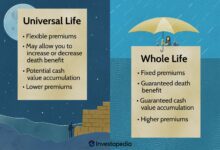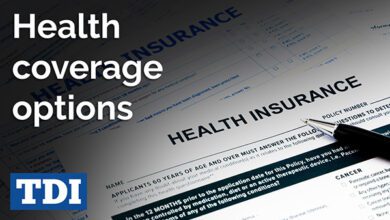Health Insurance Opt-Out: Smart Savings or Risky Move?

Health insurance opt-out refers to declining employer-provided health coverage. Employees may opt out for alternative coverage or financial incentives.
Employers often offer health insurance as a part of their benefits package, but not every employee requires this coverage. Opting out is a choice that can benefit individuals who already have health insurance, perhaps through a spouse’s plan or a parent’s policy for younger workers.
This decision should be made with careful consideration of one’s healthcare needs and the potential cost savings. Some companies incentivize employees to opt out by offering a cash payout or discount on other benefits, making it a financially attractive option. However, it is crucial to ensure that you have adequate health coverage elsewhere before deciding to opt out of your employer’s plan. This strategic decision can align with financial and personal wellness goals, as long as it is made prudently.
Understanding The Basics
Health insurance is integral to managing health-related expenses, offering coverage for various medical services. Factors such as preventative care, prescription drugs, surgeries, and hospital stays are generally included in standard policies. Navigating the scope of coverage is essential to understand what benefits the policy bestows.
Individuals considering opting out of health insurance should grasp the procedure’s technicalities. A thorough review of the potential financial and health impacts must precede such a decision. With an opt-out, they forego the safety net that health insurance provides, exposing themselves to possible high out-of-pocket costs in the face of unexpected medical issues.
Health insurance opt-out decisions may be rooted in various reasons. Some anticipate saving on premium costs, while others might rely on an alternative plan like a spouse’s policy. A tangible understanding of both immediate and long-term implications is crucial for those choosing to opt-out of health insurance coverage.
Assessing Opt-out Advantages
Choosing to opt out of health insurance can lead to significant cost savings, especially for those who are not frequent users of healthcare services. Without the burden of regular premiums, individuals might find a sizable increase in their discretionary income.
The additional flexibility offered by not being tied to traditional insurance plans enables one to seek alternative healthcare options, that could be more cost-effective or better suited to their personal healthcare philosophy. This approach can embolden individuals to shop around for healthcare services and negotiate better rates.
Regarding Health Savings Accounts (HSAs), opting out of traditional health insurance can affect eligibility. Generally, to contribute to an HSA, one must be enrolled in a high-deductible health plan. Therefore, withdrawing from traditional insurance demands a careful review of how it impacts one’s HSA contributions and the tax advantages associated. Nevertheless, for some, the decision to opt-out could still be financially beneficial when considering the broader spectrum of potential savings and investment strategies.
Analyzing The Financial Implications
Health insurance opt-out decisions often hinge on the evaluation of short-term vs. long-term savings. Immediate financial relief is a tangible benefit when premiums are dropped, yet it’s crucial to consider the potential for significant long-term costs. Medical emergencies or unexpected health issues can lead to astronomical expenses that far outweigh the initial savings.
When disregarding insurance coverage, the hidden costs can be a downfall. These costs include loss of preventative care benefits, higher rates for medical services, and the financial risk of hitting the coverage cap of high-deductible plans. This risk is especially relevant for those with chronic conditions or those in need of regular medications.
| Health Insurance | Out-of-Pocket Expenses |
|---|---|
| Predictable monthly premiums | Variable and unpredictable costs |
| Access to broader healthcare network | Potential limitation to specific providers |
| Cost-sharing benefits like co-pays | Full payment for services and treatments |
| Preventative care often fully covered | Full price for preventative services |
| Protection from catastrophic expenses | High financial risk in catastrophic events |
Weighing The Risks Involved
Weighing the Risks Involved in choosing to opt-out of health insurance can be complex. Boldly assuming that good health will continue indefinitely overlooks the unpredictable nature of medical emergencies. Without coverage, a single accident or an unexpected diagnosis can lead to financial turmoil, compounded by the stress of medical debt.
Those considering this option should understand the real-life consequences of being uninsured. Uncovered medical emergencies can result in substantial out-of-pocket costs, which may not be feasible for many. The burden of these expenses can lead to long-term financial strain, affecting not just the individual, but their family’s stability as well.
Evaluating one’s risk tolerance and health status is crucial. Young, healthy individuals might perceive health insurance as an unnecessary expense, but unexpected health issues can arise at any age. Therefore, a thorough assessment of personal and family health history, along with financial readiness to handle potential medical bills, should guide the decision-making process regarding health insurance opt-out.
Alternative Health Coverage Strategies
Health Share Programs offer an unconventional approach to healthcare, focusing on a community-oriented model where members share the cost of medical expenses. These programs often encourage a lifestyle that adheres to specific moral or ethical beliefs and might provide a suitable alternative for those who are exempt from traditional health insurance mandates due to their religious beliefs.
Catastrophic Health Plans are designed to act as safety nets for otherwise healthy individuals, covering extreme medical costs that may arise from serious accidents or unforeseen illnesses. While these plans feature significantly lower monthly premiums, it’s critical to understand that routine medical expenses must often be paid out-of-pocket until a high deductible is met.
Direct Primary Care Services (DPCs) epitomize personalized healthcare, eliminating the insurance middleman. Patients typically pay a flat monthly fee directly to healthcare providers for a defined set of services. This arrangement promotes proactive health management, granting patients unparalleled access to primary care physicians and potentially reducing overall healthcare costs.

Credit: www.nytimes.com
Frequently Asked Questions On Health Insurance Opt-out
What Does Opt Out Mean In Health Insurance?
Opting out in health insurance means choosing not to participate in a particular health plan offered, typically by an employer or organization. It can also refer to declining certain benefits within a plan.
Can I Ask For Money Instead Of Health Insurance?
Requesting cash in lieu of health insurance depends on your employer’s policy. Some may offer a “cash-in-lieu” option, where you can receive additional salary instead of health benefits. Always confirm with your HR department for specific details.
Why Do Individuals Who Are Employed Opt Out Of Health Insurance?
Employed individuals often skip health insurance due to high premiums, existing coverage through a spouse’s plan, or eligibility for government programs. Some may also prefer to pay out-of-pocket for medical expenses.
What Is Opt In Insurance?
Opt-in insurance is a coverage policy that requires individuals to express their consent to be included before they receive protection. It’s voluntary, allowing customers to choose the specific insurance features they desire.
Conclusion
Understanding your healthcare needs is crucial when considering an opt-out from health insurance. Assess the risks and benefits, and consult a financial advisor. Make an informed decision to safeguard your well-being and finances. Remember, peace of mind and health are invaluable assets in your life’s journey.







